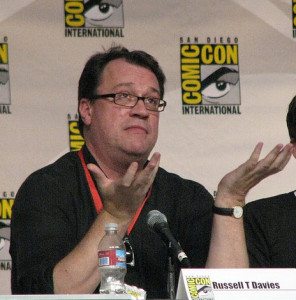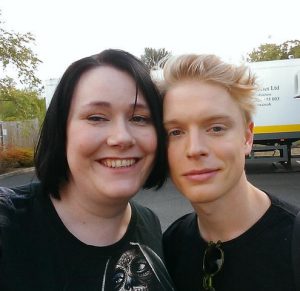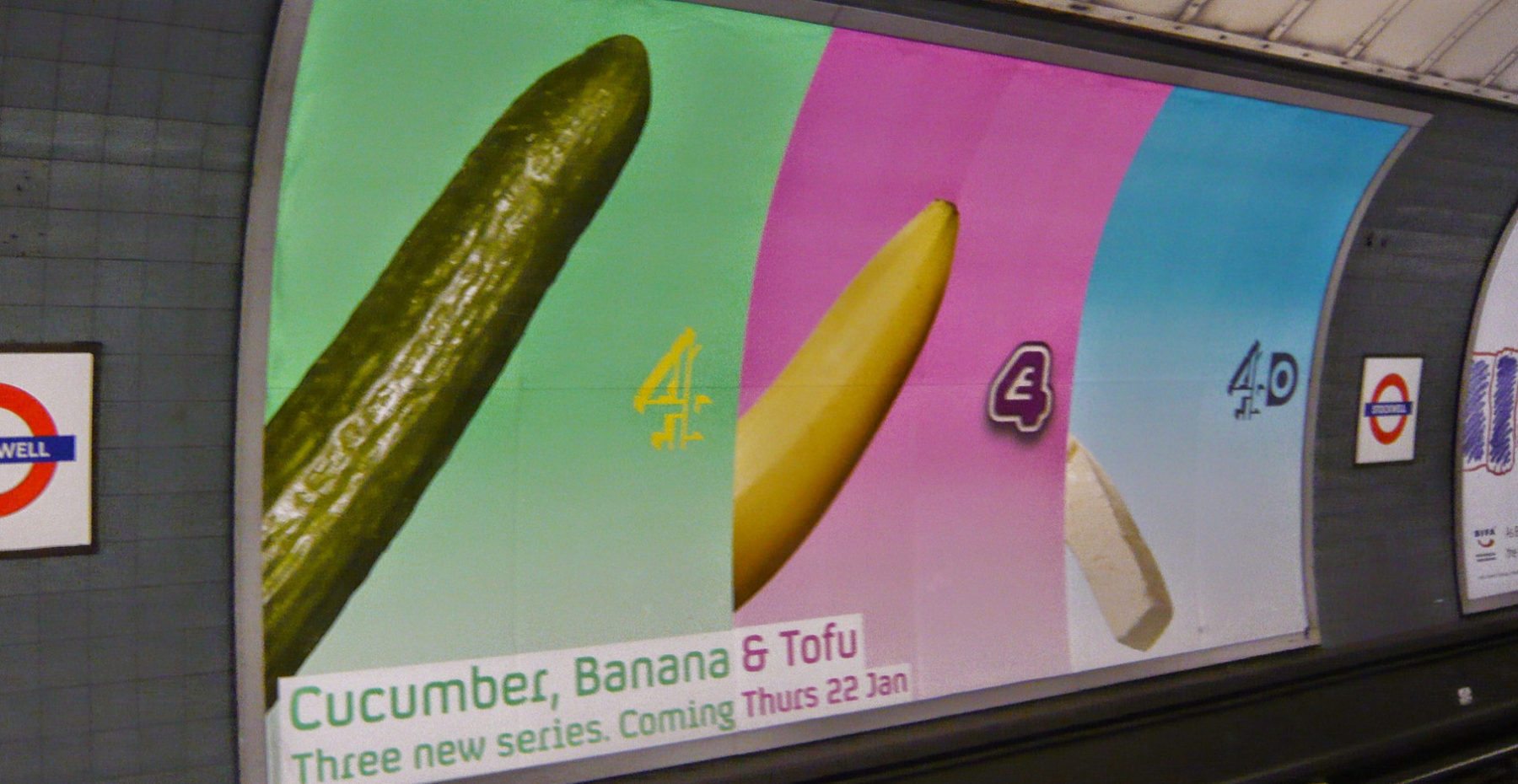Review: Cucumber, Banana and Tofu
[dropcap]Q[/dropcap]ueer as Folk was truly a show which forced the British public to stand up and pay attention to the LGBT community. There is no point in Russell T Davies’ latest trio of projects, Cucumber, Banana and Tofu, where it feels like the same ground-breaking effect takes hold; however, when it comes to LGBT drama, at this point in the TV climate it is not necessarily important for programming to break new ground, but simply for it to exist in the first place.
One would have assumed in 1999, after Queer as Folk’s debut, that this was going to be the start of a new age for LGBT representation but, in actuality, the current television landscape is relatively devoid of shows focused on these communities. (Indeed, at the time of writing, HBO has just cancelled the brilliant Looking). Thus, Russell T Davies’ work with Cucumber, Banana and Tofu becomes incredibly important as a point of discussion.

Photo: Russell T Davies – Flickr/kayleigh1229
The three shows ought to be viewed as one project, but each has its own distinctive features. Cucumber addresses the issues faced by a middle-aged gay couple in modern-day society after their breakup, whilst Banana takes secondary LGBT characters from the former show and gives each of them their own ‘short story’ style episode. Tofu, meanwhile, is a documentary series in which individuals working on the show and members of the public are interviewed about their thoughts on sex.
A common criticism that I’ve encountered with regards to Cucumber is that so many of the characters are presented as unlikeable. At times, this proves to be a double-edged sword for the show. In reality, humans are consistently flawed and it can be refreshing to see television which is brave enough to show some of these ugliest sides of human nature. Simultaneously, however, when one takes into account the fact that Davies is dealing with groups who are not regularly focal figures in the TV landscape, it could be said that some sense of duty is owed not to perpetuate potentially damaging stereotypes by creating a group of LGBT characters who are almost exclusively unlikeable. The issues are complex and the question becomes that of the importance of representation at the expense of character, or vice versa.
However, this is why I would argue that it becomes essential for the two scripted shows (Cucumber and Banana) to be viewed as one cohesive piece of work. The criticisms regarding Cucumber reflecting a very specific gay life are counterbalanced by the diverse world established in Banana — indeed, the latter show is where the true power of the project shines through.
This is no mere companion piece, but a wonderful collection of powerful short stories

Photo: Bethany Black (Helen) and Freddie Fox (Freddie) – Twitter/@BethanyBlack
What is truly of importance about the representation here is that you almost forget these are LGBT stories; rather than being presented in a way which hinges on sexuality and gender, these people are simply presented as human, for example, in the episode centred on Helen (Bethany Black), a transgender woman. Where so many other shows would have placed emphasis solely on her status as a transgender person, here that feels secondary; instead, the writers focus on other aspects of her identity. In a modern climate where transphobia is still something prevalent that needs to be tackled, this kind of representation is essential to fight prejudice and hatred.
The stories also deal with topics such as OCD, revenge porn, and immigration, all of which feel socially relevant and important and are presented with sensitivity and awareness.
Tofu, meanwhile, is extremely refreshing — some of the most powerful work in the project with regards to representation occurs here. The interviewees range from a transgender dominatrix to burlesque dancers and gay porn stars, and what consistently shines through is their humanity.
It’s truly disappointing that this was shown exclusively on 4oD and won’t necessarily reach a wider audience
The relaxed and frank manner in which sex was discussed is something I believe could have been a great instigator towards opening up communication in the home about sexual issues in an educational fashion. Okay, so maybe it’s not necessarily one to watch with your grandma, but definitely one to catch up on (the episodes are only 12 minutes, so you don’t have to sit through countless 4oD ad breaks)!
Ultimately, this is not a trio of projects without flaws — but in a climate where representation in media does not feel representative, there is certainly something positive to be gained from the shows’ existence. They may not break the same ground and have had the social impact of Queer as Folk, but if they have succeeded in making just a handful of people feel as though they’re seeing their lives reflected on screen, then they have certainly had relevance.

Comments